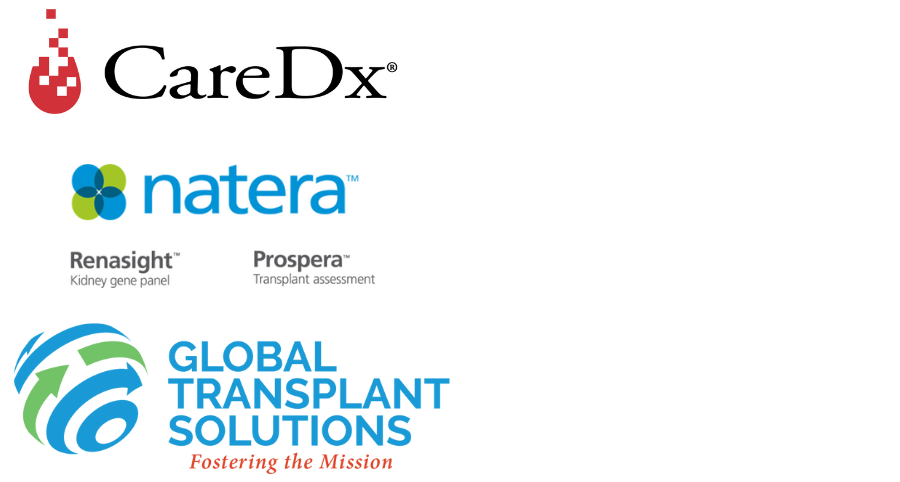Antonio di Carlo, MD, CM, FACS, FRCSC
Professor, Surgery, Lewis Katz School of Medicine at Temple University
Chief, Abdominal Organ Transplant Surgery, Lewis Katz School of Medicine at Temple University
Kenneth Chavin, MD, MBA, PhD FACS
Professor, Surgery, Lewis Katz School of Medicine at Temple University
Director, Abdominal Organ Transplant Program, Temple University Hospital
Objectives:
- Review Transplant options: Type I dm and type II dm Simultaneous pancreas and kidney
- Discuss Living kidney donation
- Discuss Aggressive decease donor kidney transplant
- Define transplant for patients with renal failure
Kristin E. Criner, MD: Safety and efficacy of GLP-1 agonists in Post-transplant Diabetes
Associate Professor, Clinical Medicine, Lewis Katz School of Medicine at Temple University and Endocrinologist
Objectives:
- Discuss the pathophysiology of post-transplant diabetes
- Evaluate studies using GLP-1 agonists in the transplant population for diabetes
- Review the safety of GLP-1 agonists in this patient population. Renal Genetics and Society Guidelines
Ronen Schneider, MD: Renal Genetics and Society Guidelines
Medical Director of Renal Genetics in the Division of Organ Health at Natera
Objectives:
- Review literature to understand the prevalence of heritable forms of CKD
- Explore recent society statements and guidelines on patient identification and testing strategy for genetic forms of CKD
- Discuss direct and indirect patient implications for identifying a genetic etiology for CKD, such as changes in treatment, kidney transplant considerations, prognostication, and impacts on family members.
Velma Scantlebury, MD, FACS, GCM: Racial Disparities in Kidney Transplant
Chief Medical Officer at the Delaware Health Equity Coalition
Adjunct Professor of Surgery at the Giesel School of Medicine at Dartmouth College and Co-Leader for the Race and Health Equity (RHE) Curriculum
Objectives
- Identify what ethnic and racial disparities are
- Describe how racism plays a role in contributing to the inequities in healthcare and transplantation
- List three social determinants of health factors that play a role keeping patients from getting on the waitlist
- Review the medical, systemic and cultural factors that can negatively influence living donation
Joe Paparo: Gift of Life Donor Program – Collaborating for Life: An Overview of the Organ and Tissue Donation Process
Senior Hospital Services Coordinator, Gift of Life Donor Program
Objectives:
- Describe the Process in which a Patient is Referred for Possible Organ Donation in the Hospital Setting
- Differentiate Between the Brain Death and Donation After Circulatory Death (DCD) Donation Pathways
- Explain the Basics of How Organs are Allocated for Transplant
- Clarify for their Patients which Donated Gifts they may Meet Criteria to Donate
Dr. Christopher Combs, PhD: Substance Abuse and Mental Health
Associate Professor of Clinical Psychiatry and Behavioral Science at the Lewis Katz School of Medicine at Temple University
Objectives:
- Define the types of substance abuse (e.g., alcohol, opioids, stimulants, cannabis) commonly encountered in kidney transplant populations.
- Describe the impact of active or past substance abuse on transplant candidacy and graft outcomes.
- Review current guidelines and institutional practices for screening and evaluating substance use in transplant candidates.
- Identify evidence-based treatment and harm-reduction strategies tailored to patients with substance-use disorders pre- and post-transplant.
- Discuss ethical and policy considerations in transplant listing decisions for patients with a history of substance abuse.
- Recognize the importance of interdisciplinary collaboration in managing these patients.
John P Mulligan, Sr., MSN, RN, M. Beth Lawrence BSN, RN, and Carly Capano: Living Kidney Donation
Director, Clinical Transplant Services of Abdominal Organ Transplant at Temple University Hospital
Objectives:
- Review the foundation and impact of living kidney donation
- Describe the benefits of living donor kidney transplant
- Recognize the living donation team and the evaluation process
- Discuss future advances in living donation matching
- Demonstrate how you can assist patients with finding living donors
Diana R. Kline: Overcoming Barriers to Transplant
Transplant Outreach Education Coordinator for Abdominal Organ Transplant at Temple University Hospital
Objectives:
- Describe the scope of practice and essential contributions of the panel members
- Identify key barriers/propose strategies to overcome through collaborative team efforts
- Recognize early indicators of transplant readiness
- Evaluate case scenarios discussed by panelists
- Summarize and interpret recent updates to transplant eligibility criteria and allocation policies
Diana R. Kline and Ryan Ihlenfeldt, DNP, RN, CCRN: Voices of Living Donation
Transplant Outreach Education Coordinator for Abdominal Organ Transplant at Temple University Hospital
Objectives:
- Describe the lived experience of both a transplant recipient and a living donor
- Recognize opportunities to provide support throughout the transplant and donation process
- Evaluate how personal narratives can inform ethical, culturally competent decision-making and education practices in clinical settings
- Identify ways social workers can advocate for patients and families during the transplant referral, evaluation, and recovery phases

